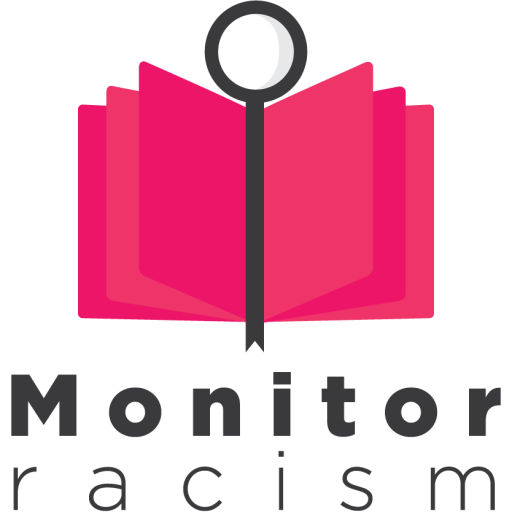I have come to believe over and over again that what is most important to me must be spoken, made verbal and shared, even at the risk of having it bruised or misunderstood. That the speaking profits me, beyond any other effect
Audre Lorde, “The Transformation of Silence into Language and Action” (1977).
Aidan McGarry
April 2019
Roma are the most maligned and discriminated against ethnic minority in Europe, frequently the target of racism as recent events in France, Italy, Ukraine and Slovakia attest. Populist forces spotlight the presence of Roma as an unwanted population or a threat.
Overt forms of Romaphobia including hate speech are often met by Roma advocates and allies with condemnation and much hand wringing; but what is to be done with these racists? We know that hate speech is a problem, and that it motivates and fuels violent behaviour but our response is somehow always inadequate. It is reactive. It involves denunciation and finger pointing and this feels unsatisfactory. What more can we do? Well, as political subjects, we have our voices to rely on.
Hate speech is certainly a problem and where Romaphobia finds fertile ground in societies across Europe. Populist politicians are aware know that they are espousing dangerous and racist ideas concerning Roma. The shift in the last 10 years across Europe is that such language and ideas are creeping into the discourse used by mainstream, centrist political parties knowing that this resonates with large swaths of the vote wielding public, be they rich or poor, old or young, educated or uneducated. Politicians know it bolsters support thus Romaphobia becomes a tool for political ends.
Romaphobia is a form of erasure. Its momentum is fed by systemic racism. Every act of Romaphobia confirms the assumed superiority of the dominant majority (invariably, the nation) and as a corollary the assumed problem with Roma or Gypsies. Romaphobia is insidious in its overt and covert manifestations of this racism. Whilst our eyes and ears are trained on the dramatic manifestations of Romaphobia such as state expulsion, eviction, and hate crime, we need to pay attention to discreet Romaphobia. This casual Romaphobia is harder to detect but is extremely prevalent and powerful because it shapes narratives and expectations about who Roma are and their place in society.
The negative ascription of Roma people as criminals, parasitic, thieves, untrustworthy and dirty have stubbornly persisted across Europe. The power to cultivate and convert social anxieties into fear is a political function with Roma frequently scapegoated by the state, politicians, and the media. It is this tacit acceptance of Romaphobia which allows it to survive and flourish. We need to acknowledge the impact of this inaction by the majority who accept the status quo and allow instances of Romaphobia to go unchecked.
In the past, we saw efforts to assimilate Roma communities by the state, to dilute Roma identity to the point where Roma lost much of their cultural specificity. Instead, more participation, visibility and voice, not less, is today the way forward.
I want to draw attention to agency and to the power we, as individuals, have. The key is to challenge Romaphobia in all forms. In the last few years, people have become more willing to speak up and call out problematic behavior and language, particularly concerning sexual harassment, misogyny, homophobia, racism, and Islamophobia. We need to do the same with casual, everyday Romaphobia. Doing so will increasingly make Romaphobia unpalatable for the public, and by extension, less appealing for politicians and the media. Our voices will act as a corrective. We all have a role to play in fighting Romaphobia, the last acceptable form of racism. And it is important to recognize and utilize our position to challenge Romaphobia where it arises.
Lessons from homophobia suggest that prejudice is never entirely eradicated. But it can become unacceptable and this is a victory. Twenty years ago, a politician in Western Europe could spew lies and hatred about gay people safe in the knowledge that such language would resonate with large sections of the public. Today, such a statement would probably mean the end of their career. There is a long way to go for the same to be true for Roma communities.
We need to speak up and call out. We can take a stand in our day-to-day interactions at home, in public, and in the workplace. There are different ways to do this; but it is better to avoid confrontation. If we call someone a racist because of a statement they make about Roma, it is unlikely to change their mind, and they are likely to double down in their conviction. A racist will never admit that they are a racist thus any accusation of racism can be swatted away, as Alana Lentin has argued in these pages. However, if we focus on the behaviour in question, highlighting why statements or actions are problematic, rather than the person, we are more likely to get through.
This micro-acts approach to antiracism requires knowledge and education on our part; to educate ourselves and others so we are equipped to challenge stereotypes and myths. Furnishing ourselves with such knowledge will allow us to confidently and calmly challenge Romaphobic statements and behaviour.
The challenge is to change the hearts and minds of the majority. And unless we bring the voices of Roma themselves to the centre of society, the problem cannot be solved.
The public voice of Roma is often ignored or silenced and Romaphobia can stifle this voice or distort its message. That is why efforts at Roma mobilization at the local, national and transnational levels need to be supported. It is through the mobilization of Roma communities that manifestations of Romaphobia be challenged, institutions underpinned by Romaphobia broken and political practices motivated by Romaphobia halted.
If one does not speak up, then there is a tacit acceptance in the status quo. Failure to do so renders us complicit in systemic racism.
As someone who is not Roma I can speak up as an ally, safe in the knowledge that my privileged position protects me and allows my voice to be heard, to have a platform (like MONITOR) to amplify my concerns. Speaking up against and calling out Romaphobic behavior is the minimum we can do if we are committed to fighting all forms of racism.
Dr. Aidan McGarry is the author of Romaphobia, The Last Acceptable Form of Racism (Zed Books, London, 2017). Aidan is a Reader in International Politics at the Institute for Diplomacy and International Governance at Loughborough University, London.


